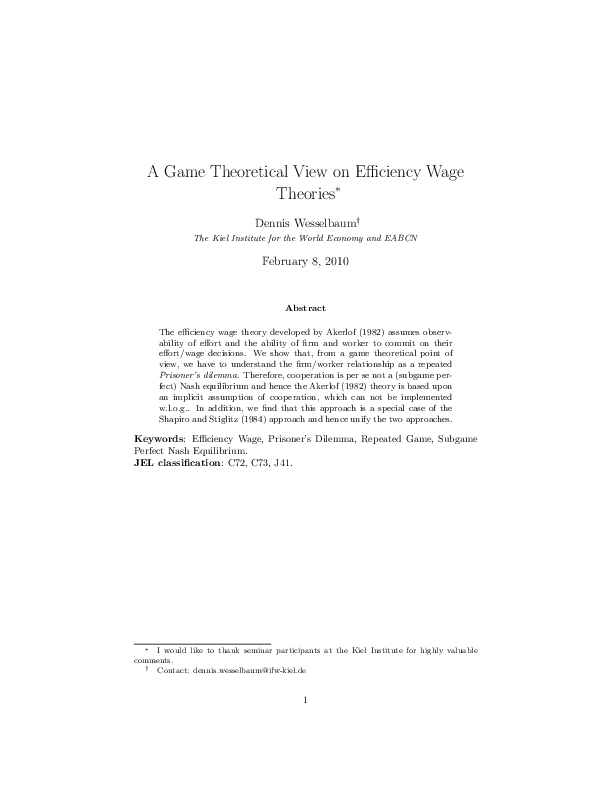Authors
Publication Date
JEL Classification
C72
C73
J41
Key Words
The efficiency wage theory developed by Akerlof (1982) assumes observability of effort and the ability of firm and worker to commit on their effort/wage decisions. We show that, from a game theoretical point of view, we have to understand the firm/worker relationship as a repeated
Prisoner's dilemma. Therefore, cooperation is per se not a (subgame perfect) Nash equilibrium and hence the Akerlof (1982) theory is based upon an implicit assumption of cooperation, which can not be implemented w.l.o.g.. In addition, we find that this approach is a special case of the
Shapiro and Stiglitz (1984) approach and hence unify the two approaches.






